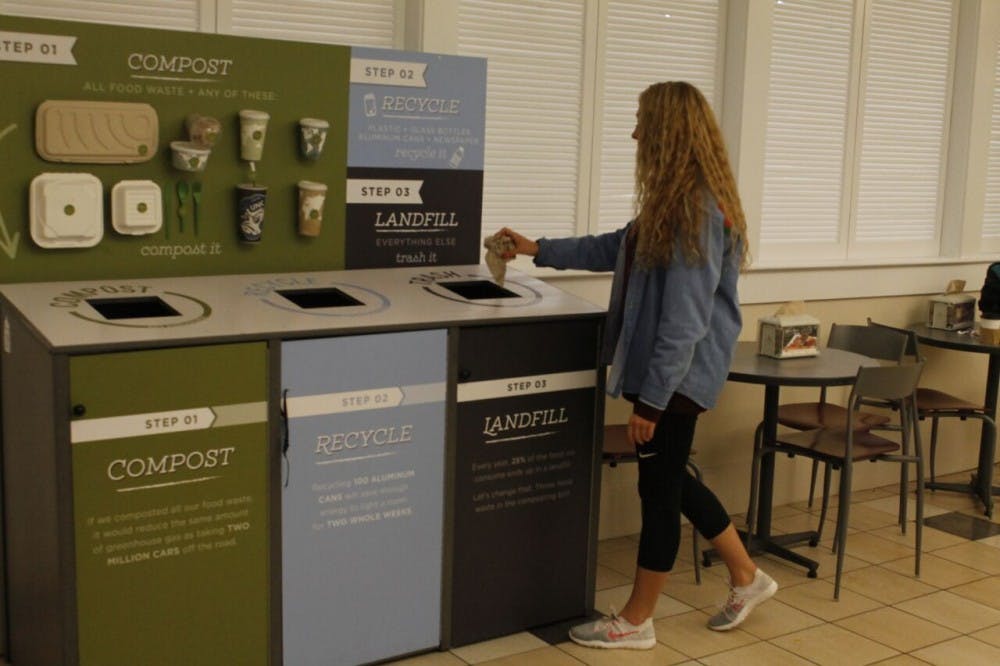The Residence Hall Association is aiming to be more sustainable than ever, with a new plastic film recycling program that will help clean out the recycling stream and remove plastic from landfills.
Each on-campus community now offers plastic film recycling at the community office desk. In order to prevent the contamination of recycling, resident advisers and office assistants will handle and recycle the plastic film directly.
“On-campus residents definitely have the ability to make a huge impact,” said junior Andy Hoang, director of sustainable projects for the Residence Hall Association.
The RHA has been working extensively to promote sustainability in recent years, said Bharat Modi, president of RHA. The plastic film recycling project has been in the works since RHA’s last director of sustainable projects was in office, and the RHA has since released educational material such as laminated information sheets and digital signage to get students on board.
Hoang said "upwards of a couple thousand dollars" have been invested in purchasing new bins for the plastic film, with one bin in each residential community and 10 extras reserved for RHA events.
Although the project began this past Monday, RHA has already noticed participation from a number of communities, Modi said.
Plastic film includes grocery bags, Ziploc bags, produce bags, water bottle casing and toilet paper and paper towel wrapping. The primary focus of the program, however, is to recover plastic bags, Hoang said, which is commonly mistaken as recyclable.
“We focus on plastic film because it’s a top contaminant for recycling, and it’s a common mistake everyone, including myself, has made,” Hoang said.
If non-recyclable materials such as plastic film are detected in the normal recycling stream, facility workers often remove the entire batch of recyclables and dispose of it in the trash, Hoang said.



